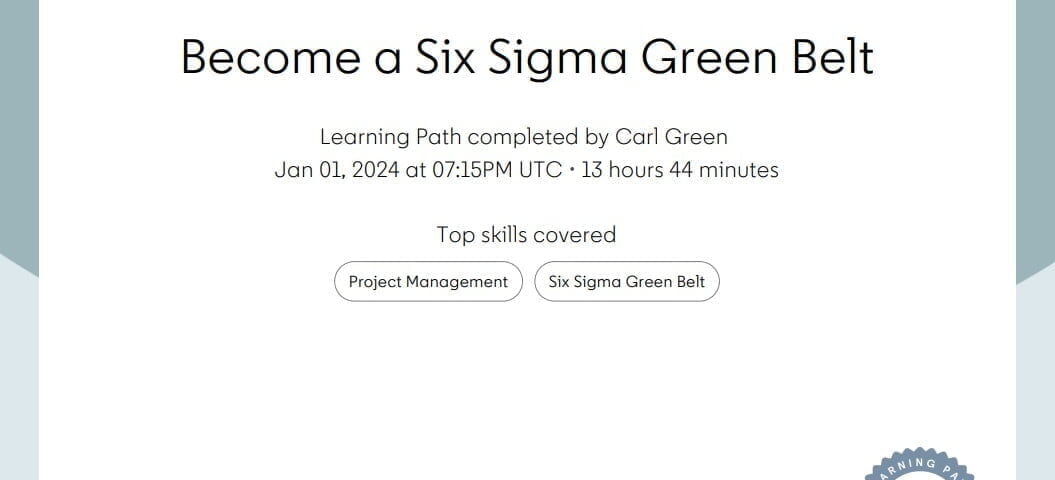I have been treading water for a few years now. Letting life pass me by while I overcame some personal challenges, which I can say has been done. Rear view mirror. Check. Complete.
As this first day of 2024 progresses I have put my time to good use. This will not be a year I will allow to pass. I am making changes. One way or another, I will not be in the same place by the end of this year.
To this goal, I used some of the holiday period to retrain. More accurately, to focus on and hone my existing skill set. Over the years I have made and managed projects of many sizes, in more than a dozen careers. Delivering results along the way. Either as a solo operator, or running teams both small and large to meet the required objectives. On time, on budget, on point. Get the job done. That’s the point.
I have no official certifications. Never got that degree. So I thought it was time to formalise some of that experience and skill set, and engaged in the Six Sigma Green Belt project management program. Six Sigma has a 370 page manual, freely available to those that can stomach this amount of reading. Knock yourself out. Six Sigma is defined in the manual as “… both a methodology for process improvement and a statistical concept that seeks to define the variation inherent in any process”.
In English, it makes things better.
What?
Six Sigma is a framework to reduce the delta between theoretical perfection and real-world scenarios. Specifically, it allows analysis of any process to determine what needs to be improved, how easily, how much, how long it will take, and at what approximate cost. All using the actual available data. That kind of detail is really popular with executive teams.
The ability to say “The data shows that this process can be done 30% cheaper, using fewer resources, and resolving four primary pain points” is a persuasive argument that is hard to ignore, especially when borne out with actual data.
Six Sigma covers the entire gamut of change management and process improvement, using real-world data to perform statistical analysis, hypothesis projection, management presentations and reports, right up to control processes and project sign off on completion. Quite comprehensive. And I am pleased to say that I learned a few things and added some new tools to my toolbox, which I can and will use on all future projects. It’s useful to know, rather than guess at how to improve things.
I shall use this knowledge as I always use learning: As a springboard to reinvent myself. Again.
Because I like to do that every decade or so. It’s time.
Onward.
